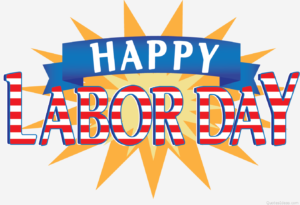 There is nothing better for people than to be happy and to do good
There is nothing better for people than to be happy and to do good
Ecclesiastes 3:12
 There is nothing better for people than to be happy and to do good
There is nothing better for people than to be happy and to do good
Ecclesiastes 3:12
 Q: I was assigned to a project that was a big failure. How do I recover?
Q: I was assigned to a project that was a big failure. How do I recover?
Now consider:
Act now: How you respond to failure is more important that the specific incident. Go through the checklist: Did you have the competence to achieve the project? Is your credibility intact with your boss, peers, and key stakeholders? And, finally, do you have the confidence to accept responsibility, grow from the experience and move on?
Need inspiration? Here are three quotations to keep in mind as you move forward:
Success is the ability to go from one failure to another without loss of enthusiasm. Winston Churchill
If you’re not failing every now and again, it’s a sign you’re not anything very innovative.
Woody Allen
Many of life’s failures are people who did not realize how close they
were to success when they gave up.
Thomas Edison
First posted 11/23/2013. Enjoy your Summer.
 Does your environment support exploration and change? Look around. Are the people in your immediate environment—your friends, family and colleagues—open to change? Are they stimulating and interesting? Do they relate to change with “Bring it on!” or with suspicion or fear? If the people close to you avoid change they probably don’t want you to change either. They expect you to be reliable and predicable—to remain basically the same.
Does your environment support exploration and change? Look around. Are the people in your immediate environment—your friends, family and colleagues—open to change? Are they stimulating and interesting? Do they relate to change with “Bring it on!” or with suspicion or fear? If the people close to you avoid change they probably don’t want you to change either. They expect you to be reliable and predicable—to remain basically the same.
If your personal brand is as solid as concrete, changing now could be as risky as replacing the “old” Coca-cola with the “new” Coke. If you suggest moving in a new direction, you might hear comments like, “You’ve made it, don’t stress yourself now;” “Relax—you’ve earned it;” “Why would you want to take that on at your age?” or “You might not be successful at that” and “I did that and I didn’t like it.” Don’t be caught in these spider webs of complacency! Approach your escape from your rut strategically and nimbly. Remember the four inevitable downsides of change (see Chapter 5) and consider how they will affect your personal and professional stakeholders.
Then, my advice is to remember the management principal of “no surprises” and bring your stakeholders along with you on your new path.
1 Declare a change in your pattern. Let them know that you are on a new path or at new stage of growth.
2 Convey your emotion. “I am excited/enthusiastic/curious/intrigued.” Make it sound like  an adventure and exploration.
an adventure and exploration.
3 Describe the benefit. “This is something that I always wanted to do” or “I am glad to be painting/ playing the piano again” or “This new role will put me right in the action—it will be exciting to shape the next phase.”
Always remember to surround yourself with people that will lift you higher,
 Q. I am in Sales and on track to exceed my numbers by the end of this month. I have a few small deals in the pipeline, and I honestly don’t expect another big deal to close until first quarter 2017. How do I stay visible with my managers?
Q. I am in Sales and on track to exceed my numbers by the end of this month. I have a few small deals in the pipeline, and I honestly don’t expect another big deal to close until first quarter 2017. How do I stay visible with my managers?
A. Congratulations on your success to date, especially in today’s competitive and discerning market! You are asking a timely question. When you are ahead of the curve—out in front of your peers—it is important to walk a fine line between being visible and appearing arrogant. To maintain the good will of your manager, colleagues, and clients consider the following:
Finally, as you know, the small deals that you have yet to close may have the  possibility to grow. Stay focused and don’t leave anything on the table. Above all, don’t coast!
possibility to grow. Stay focused and don’t leave anything on the table. Above all, don’t coast!
FIRST PUBLISHED SEPTEMBER 8, 2014
 Q: Help me! Each year we go to our summer home in Chilmark for three weeks. I used to love it! But now, we have only been here four days and my brain is numbed by repetition of the same old things, the kids are getting on my nerves, and if we have to have one more dinner with the Smiths…. What am I doing here?
Q: Help me! Each year we go to our summer home in Chilmark for three weeks. I used to love it! But now, we have only been here four days and my brain is numbed by repetition of the same old things, the kids are getting on my nerves, and if we have to have one more dinner with the Smiths…. What am I doing here?
A: The answer is straightforward (and maybe not what you want to hear): be mindful. Actively notice new things. OK?
It is likely that repetition has dulled your senses. The image I have is the Cowardly Lion traipsing through the poisonous field of poppies and keeling over with his paws in the air. Be present and engage by revisiting the following:
 disenchanted before you left home?
disenchanted before you left home?You are in Chilmark, one of the most beautiful places in the world. What can you do right
now to be present and mindfully engaged? Start by being curious–OK?
Originally published August 11, 2014

Blind spots take many forms. Your blind spot may be a tendency to put yourself down, to resist data contrary to your desires, or to avoid conflict. Your blind spot may show up in a pet project that you protect far after its lack of value is clear to everyone else. Your blind spot may be physical, such as an annoying laugh, or social, such as appearing arrogant by checking texts during meetings. Blind spots are not necessarily inherently bad traits, but as long as you are not aware of them you are at their mercy.
Don’t ask whether or not you have a blind spot—everyone has one, or many! The tip-off is that sinking feeling that you are going down the same maze that never has cheese at the end, but you can’t stop walking. Or, you notice that your expertise or approach is no longer effective, it is bankrupt and its results are unreliable. If so, it may be time to ask, “What am I missing? What is my blind spot and how can I correct it?
 Another way to ask these questions is, “Why do I make the same mistakes more than once?” The answer is often a blind spot. Here are a couple of actions you can take to reveal your blind spots to yourself:
Another way to ask these questions is, “Why do I make the same mistakes more than once?” The answer is often a blind spot. Here are a couple of actions you can take to reveal your blind spots to yourself:
that we dislike most in others what we cannot see in ourselves. When you say “I can’t stand it when she….” or “I hate it when people are….”it’s like a big red flag waving: “Look over here! This trait is likely to be your blind spot.
Remember that the fastest way to take of the blinders is to ask your spouse, partner and friends and listen—really listen—to what they say.
FROM GTST CHAPTER 11 page 109
 Q: She went to HR and said that I yelled a lot and pushed too hard. Why didn’t she come to me? I don’t yell.
Q: She went to HR and said that I yelled a lot and pushed too hard. Why didn’t she come to me? I don’t yell.
A: Oh, where to begin. There is a lot packed into your question and without understanding the full context, here are my immediate questions for you to consider:
Now, take a close look:
 people argue we often label their action as yelling even if voices are not raised. What can you do to get on the same page?
people argue we often label their action as yelling even if voices are not raised. What can you do to get on the same page?Now that HR is involved, you can benefit from this contretemps. HR can act as an honest broker and help you close gaps in your communications style and approach to work. Remember to ask for specific examples, preferably observable behaviors. OK? And, remember to lighten up– see below:
George had sought out a stretch assignment that he expected would set him up for promotion because it gave him a chance to put his capabilities and expertise on display. The assignment was recognized as a big challenge, and George succeeded with flying colors. So he was dismayed when Phil got the coveted promotion to Senior Vice President.
Phil got ahead because he is always brown-nosing. I’m not going to do that – I hate the politics in my office.
When I asked, “Why does your boss listen to Phil?” George answered quickly, “Phil tells him what he wants to hear.” Really? If you believe that, what,do you have to say that your boss would listen to? What value can you add?
Don’t make the mistake of categorizing all the behavior you don’t like in your workplace as “political.” Instead, expand your own political acumen by realizing that what looks like a political cabal may simply be another circle of influence—a group of people who view themselves as the “right”circle. Remember that people self-organize according to their interests and, often, their ambition. These groups become more insular if the environment is competitive, when there are limited opportunities to get to the “top,” or when the bonus pool or performance ratings are capped.
If you view your situation as political, don’t sit on the sidelines. Figure out who has the power—or access to the source of power—in the circle or clique. Do your homework and learn about the individual members’ interests, experiences, history and values. You may decide to create a foothold in the “political” circle. There are real benefits to you if you do: you will expand your perspective, become privy to conversations that you would not have heard, and gain insight or advance knowledge of the business.
Are you ready to get off the sidelines? Mobilize your network and use your political acumen.
In a given process or system some people matter more than others.
Malcolm Gladwell, The Tipping Point
 Q: Ambushed! My boss called me in on Friday and walked me through the severance package. He assured me that it is generous and said that my last official day is July 15, then he added, “If you want you can pack up your office today.” Should I sign or get a lawyer?
Q: Ambushed! My boss called me in on Friday and walked me through the severance package. He assured me that it is generous and said that my last official day is July 15, then he added, “If you want you can pack up your office today.” Should I sign or get a lawyer?
A: We expect fireworks on July 4th but we don’t expect our job to be torpedoed! The word “ambushed” suggests that you are surprised to be fired/let go and I suspect that you are still reeling emotionally. Now is the time to keep your wits about you, your emotions in check and your feet on the ground. Ask yourself the following:
Being an at-will employee means that your employer can terminate your employment at any time, for any cause—with or without notice. An employer has every right to walk up to an at-will employee and say, “I don’t like that your favorite color is purple. You’re fired.” There are very few, if any, remedies for you, unless your employer did something to violate your employee rights or broke labor law.
However, if you were wrongfully terminated you may have a case. Even so, it is important to think before you act: Do you have the financial resources to engage in what will almost  almost certainly be a lengthy process? When and if you win your case will there be an impact on your career? Your reputation?
almost certainly be a lengthy process? When and if you win your case will there be an impact on your career? Your reputation?
Finally, don’t make the mistake of dwelling in the past. Take a deep breath, dust yourself off and move forward. Good luck.